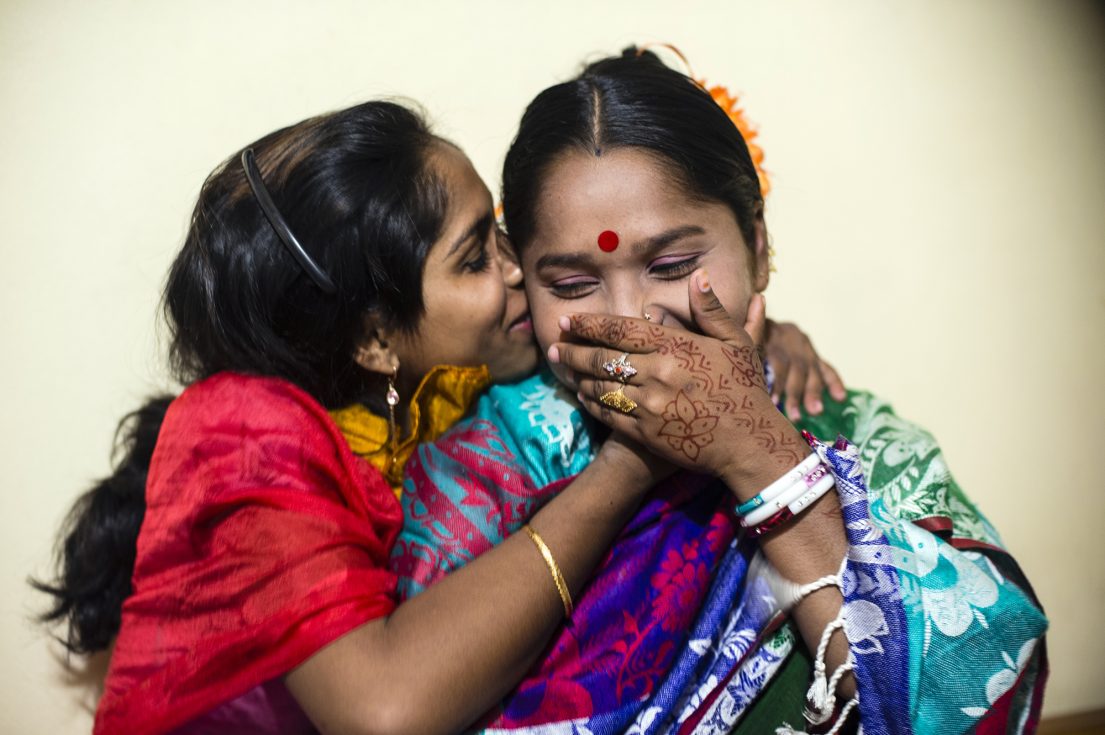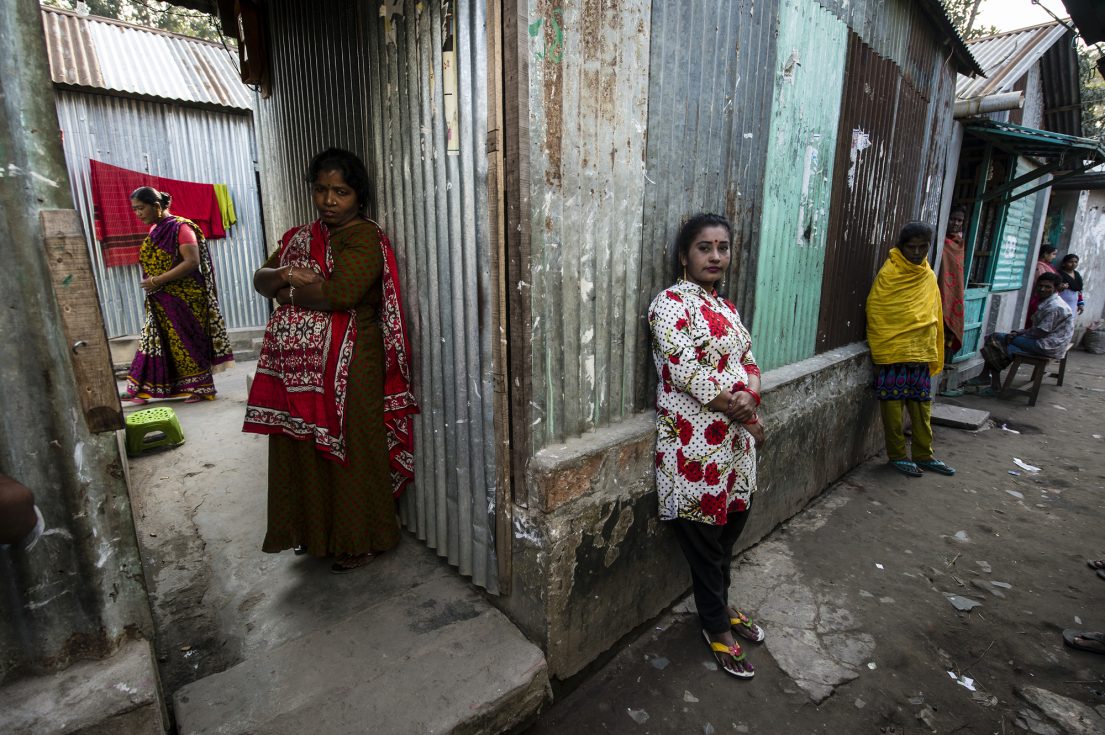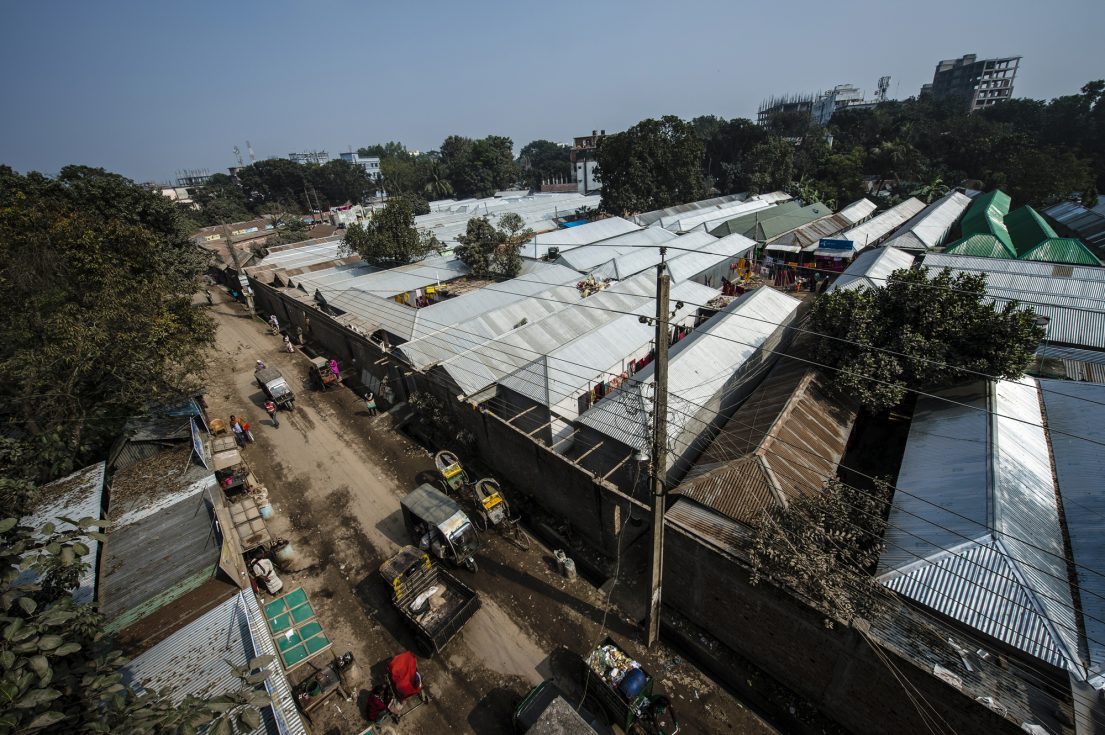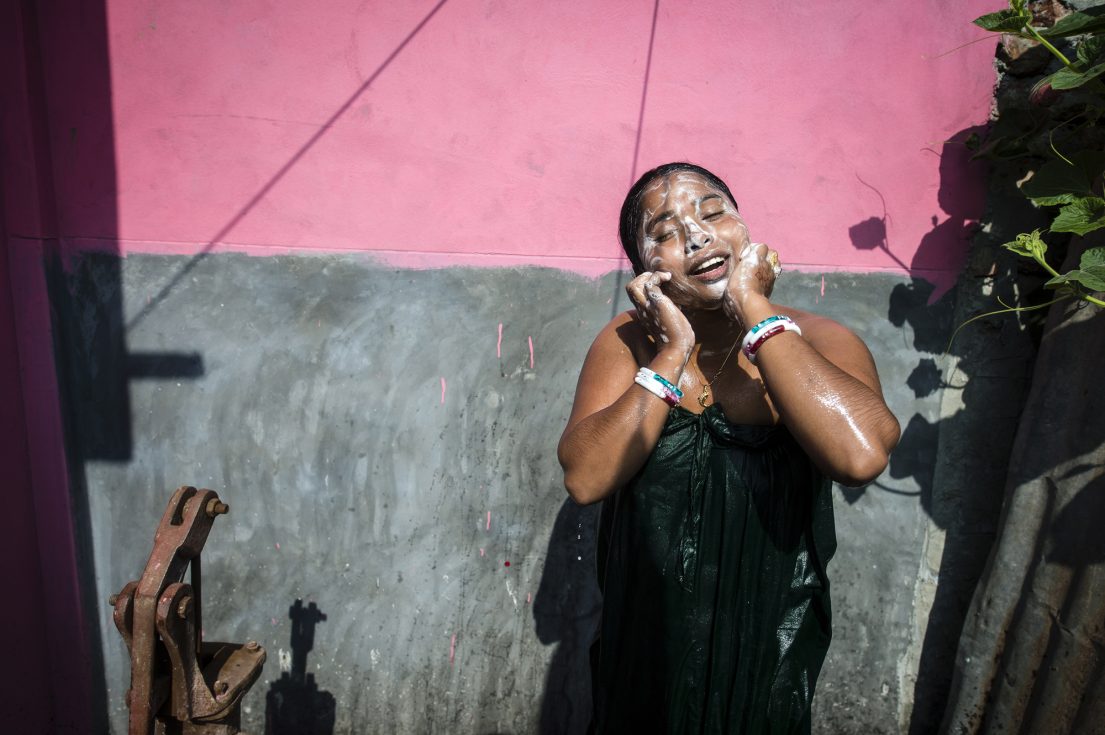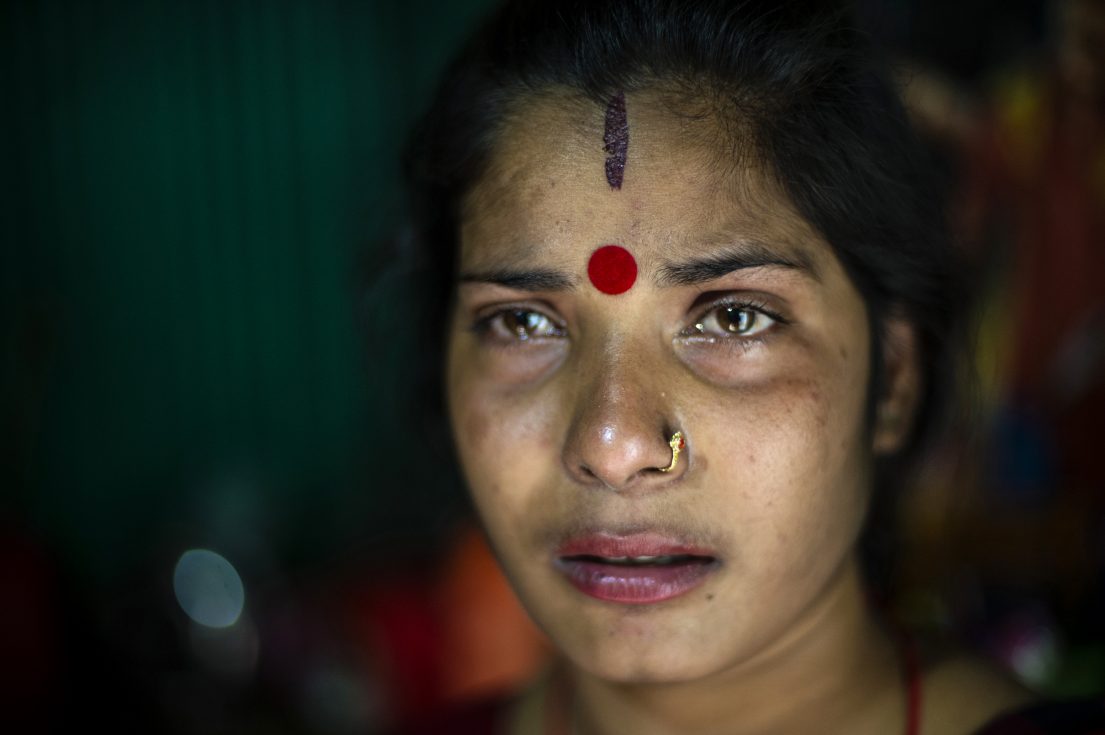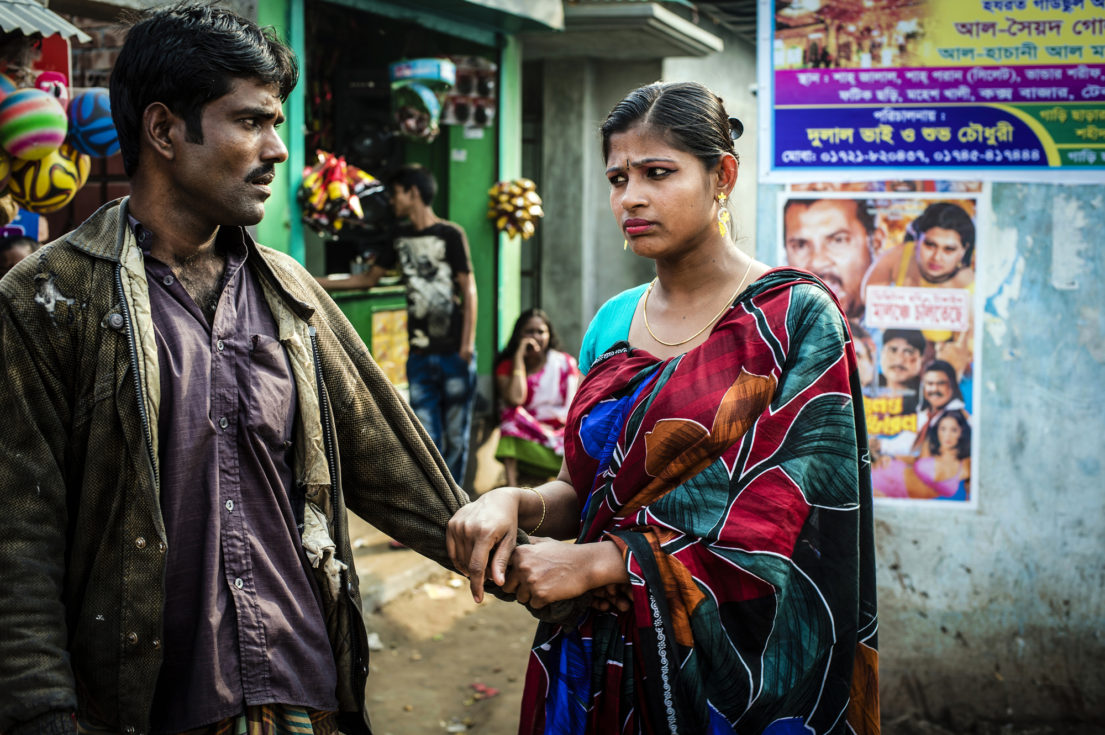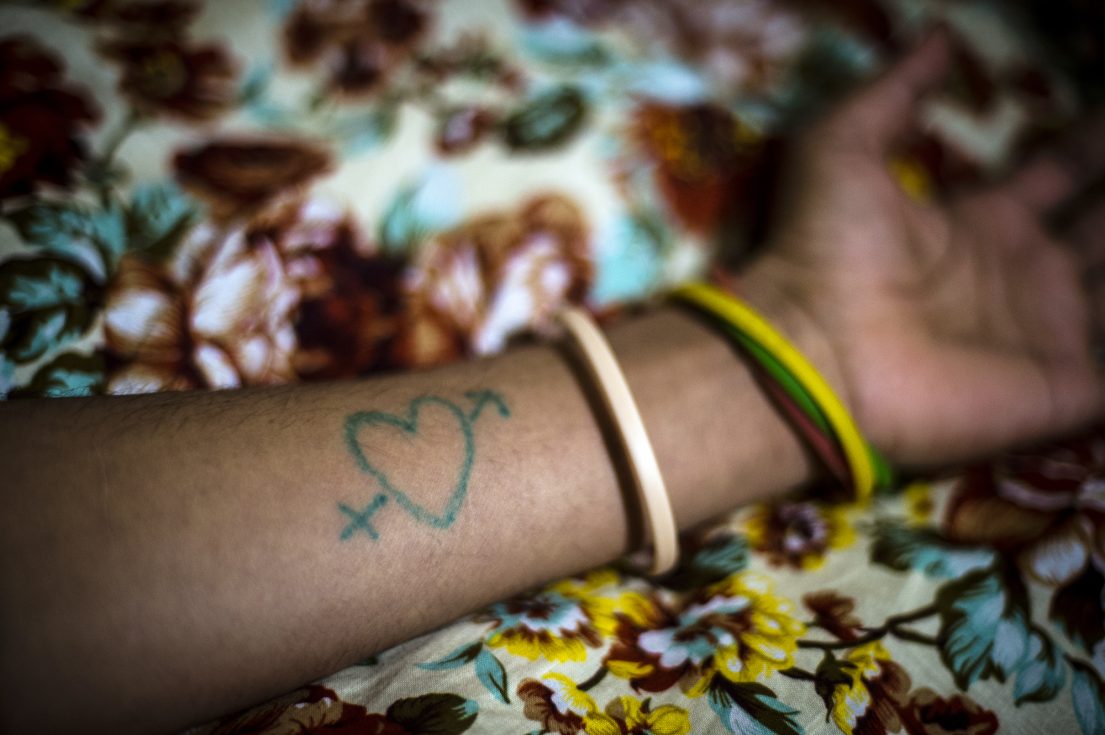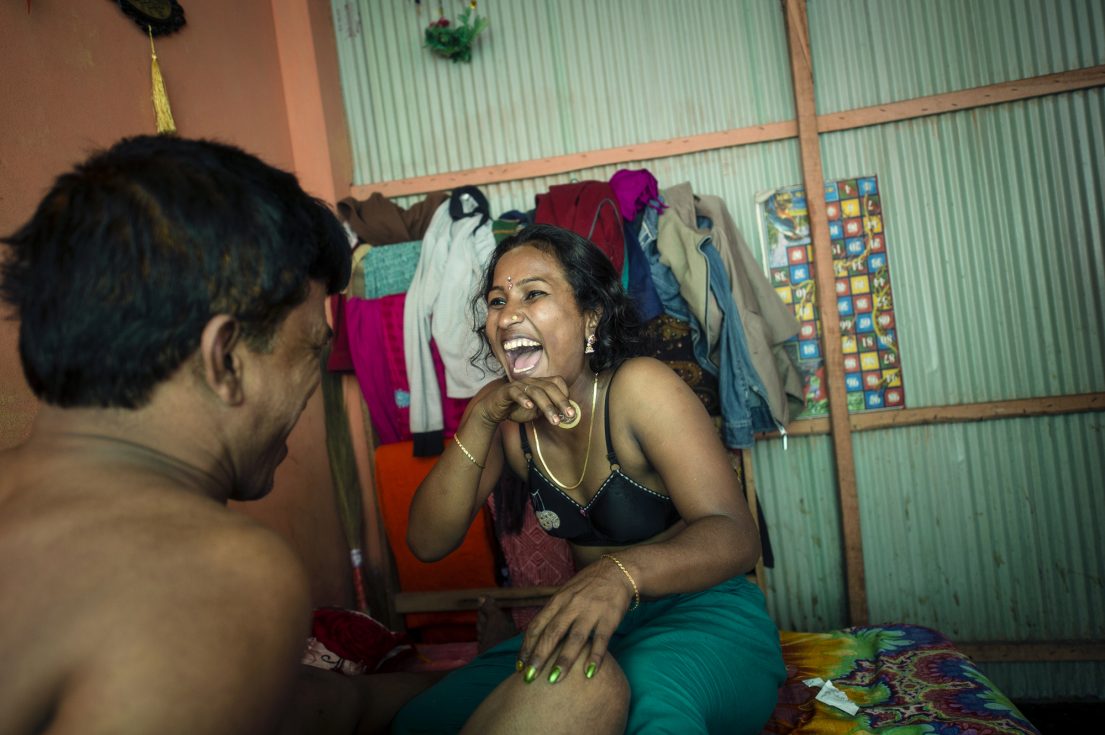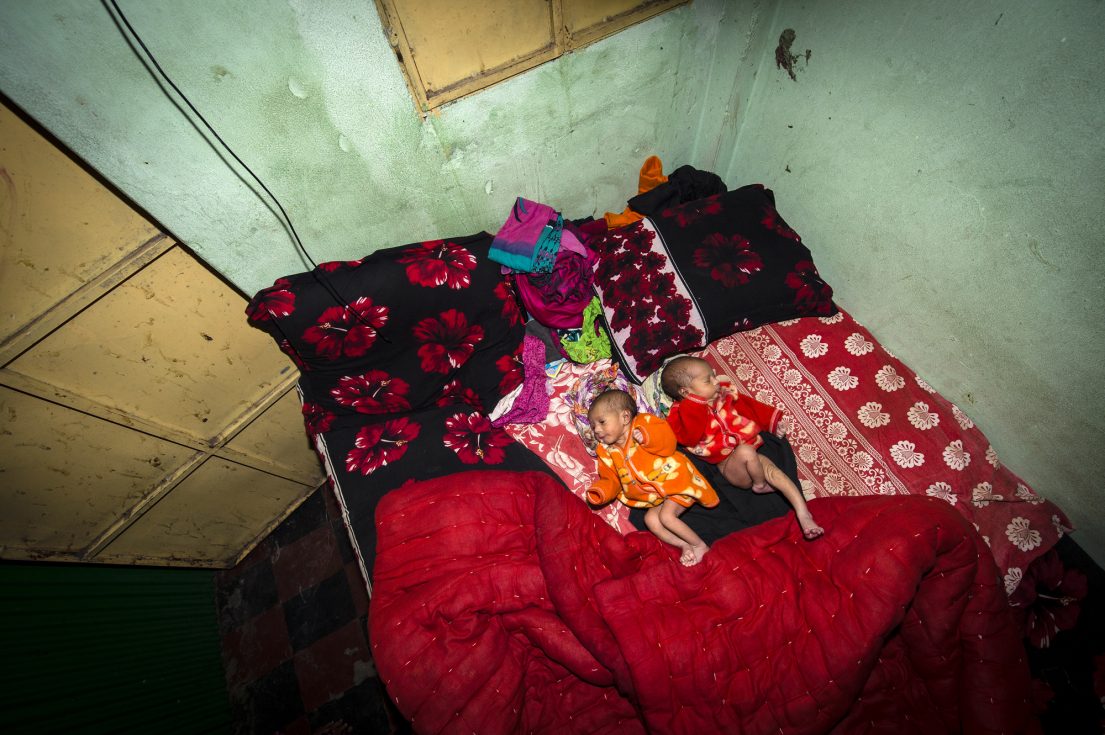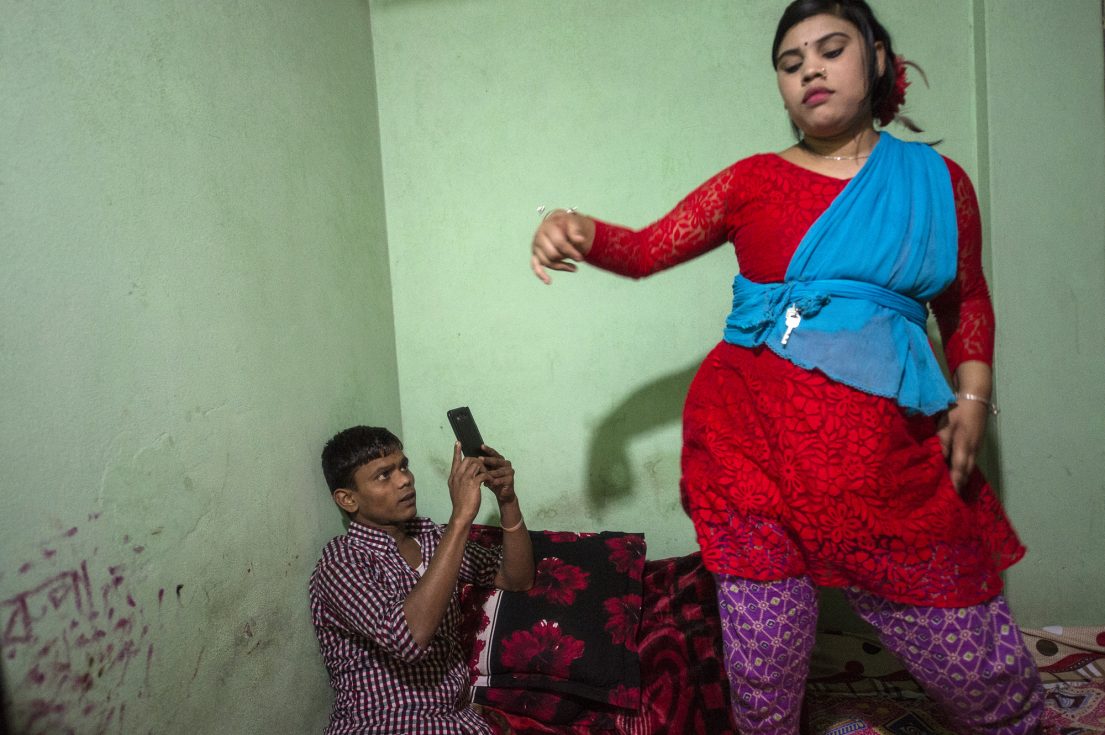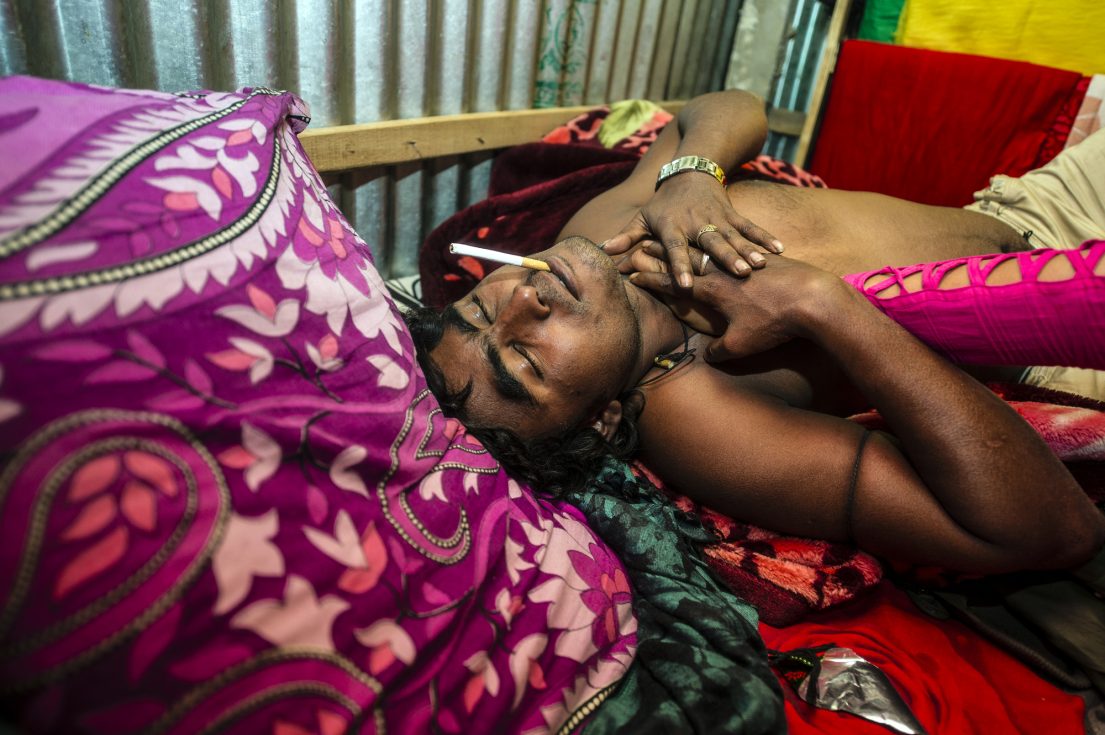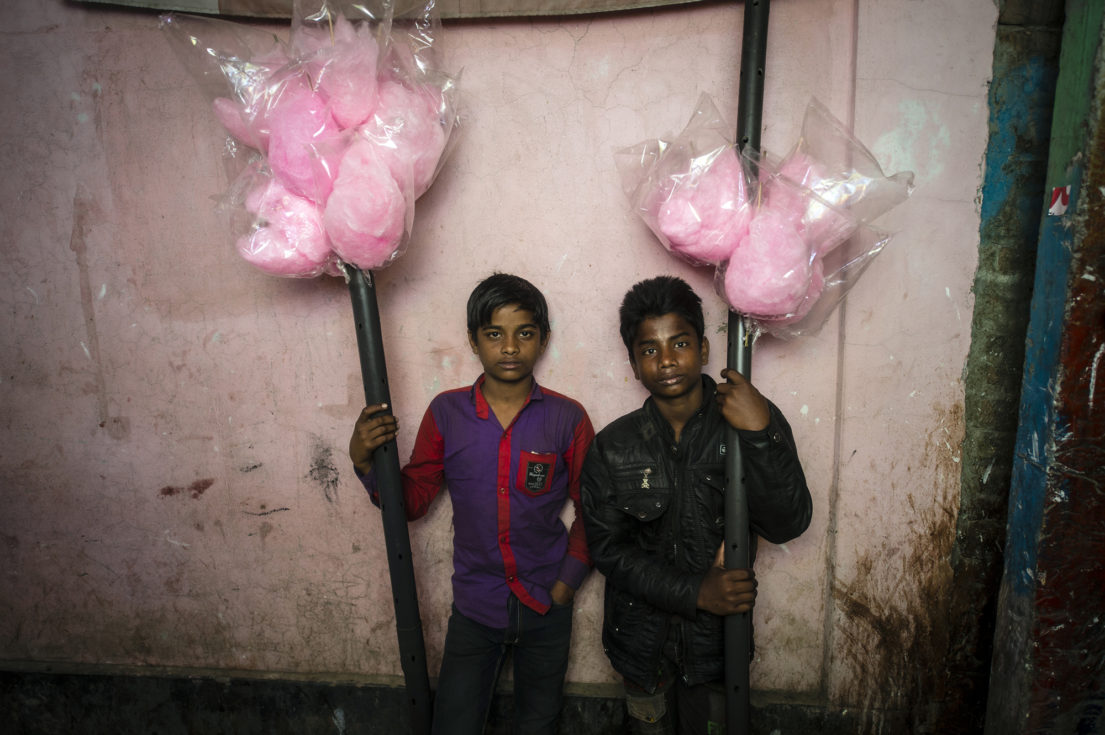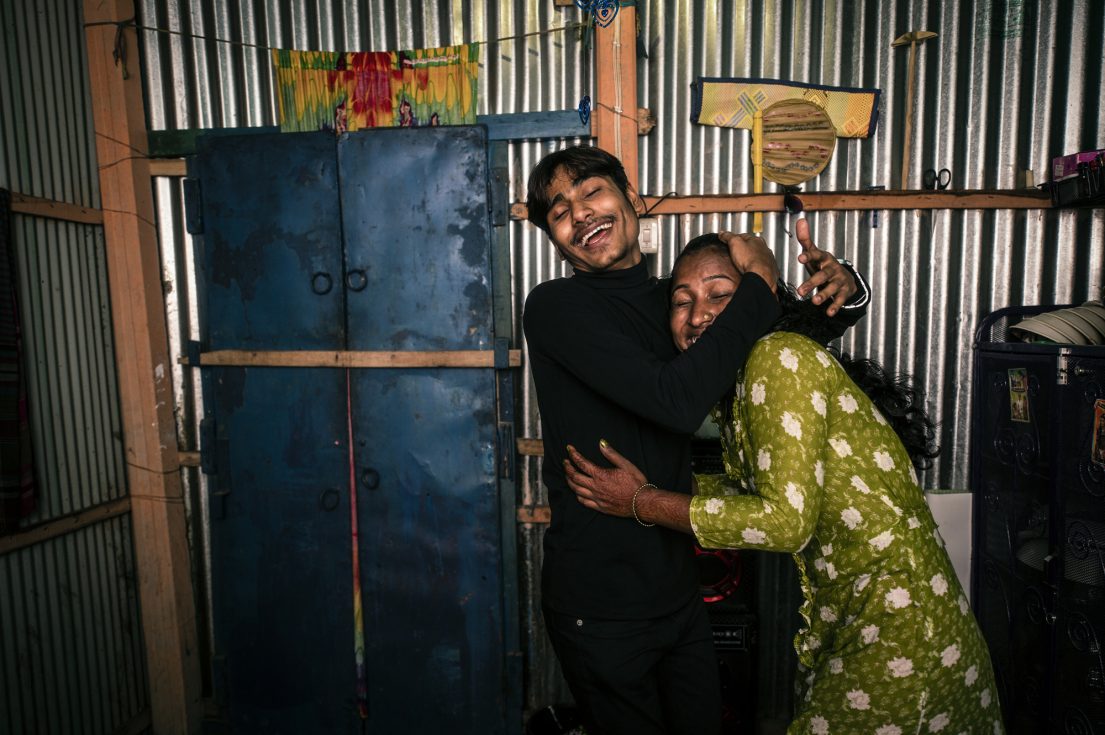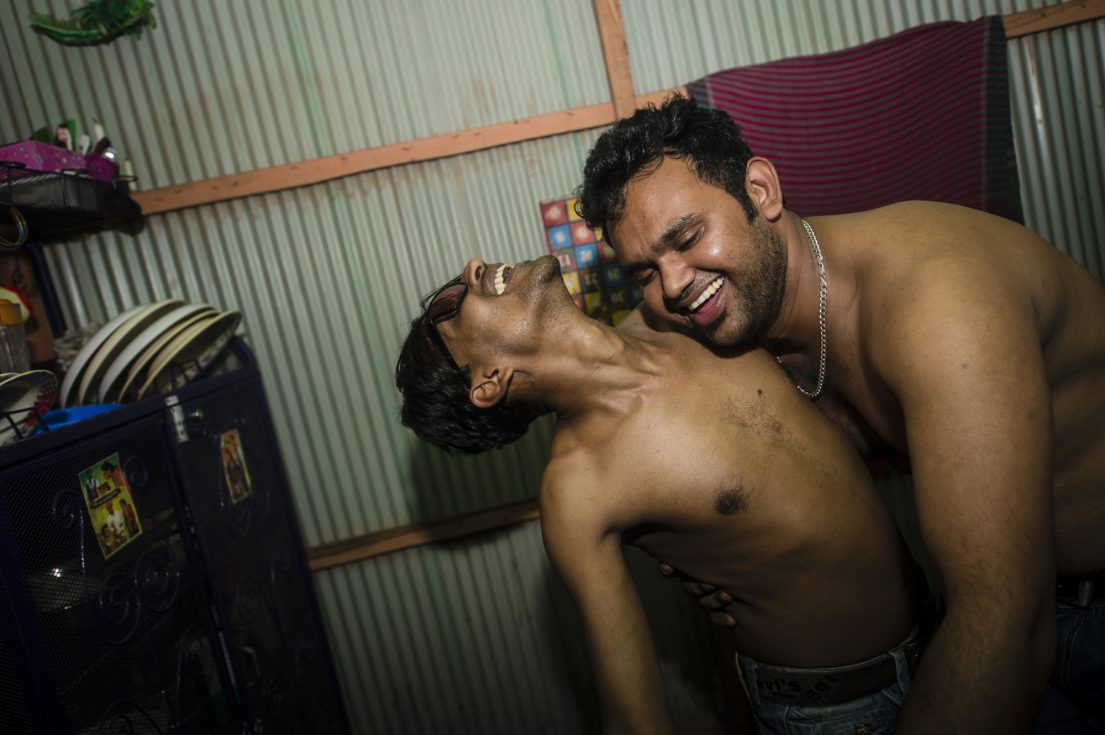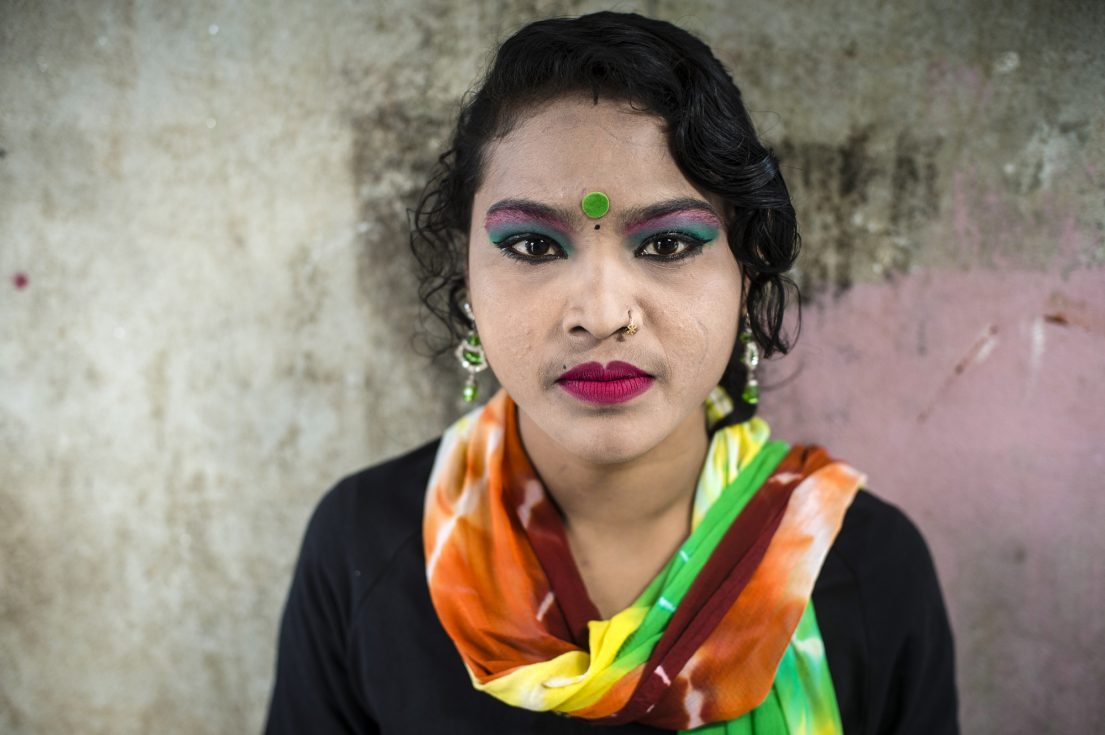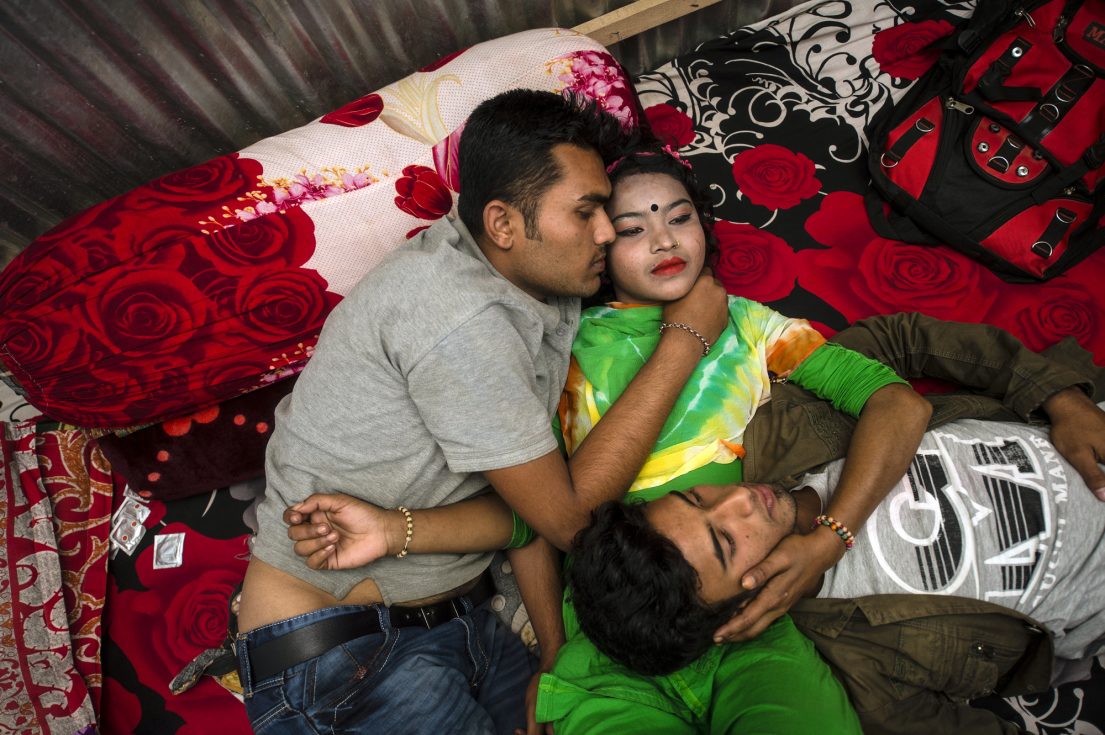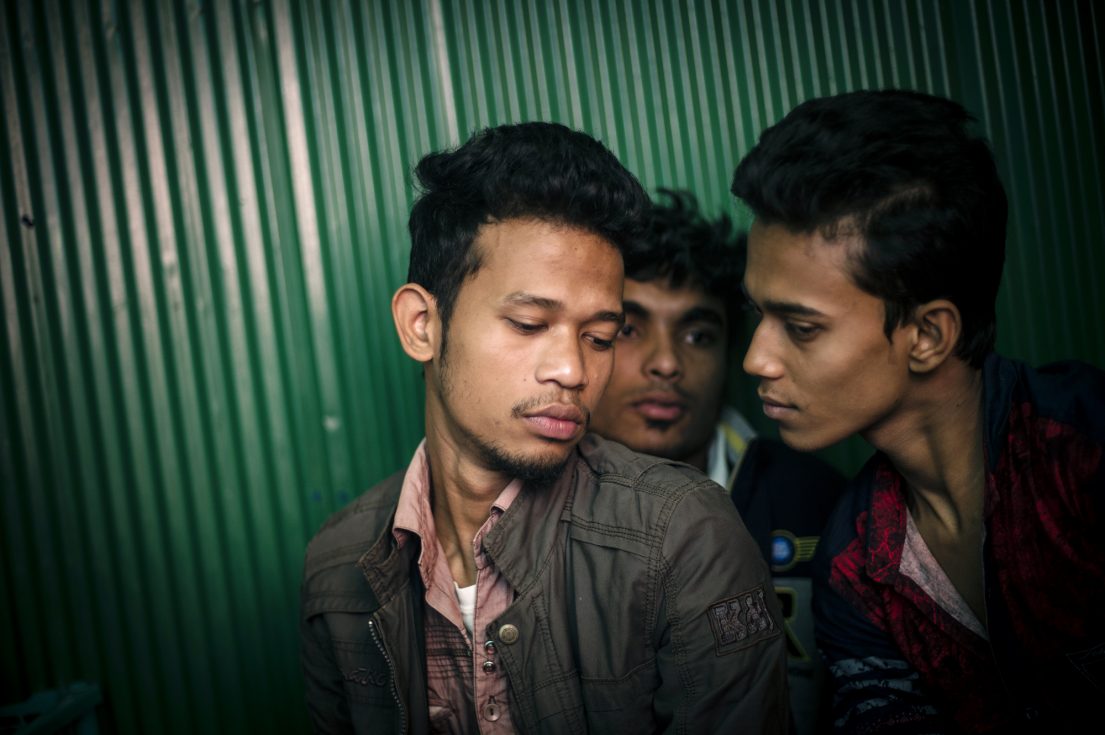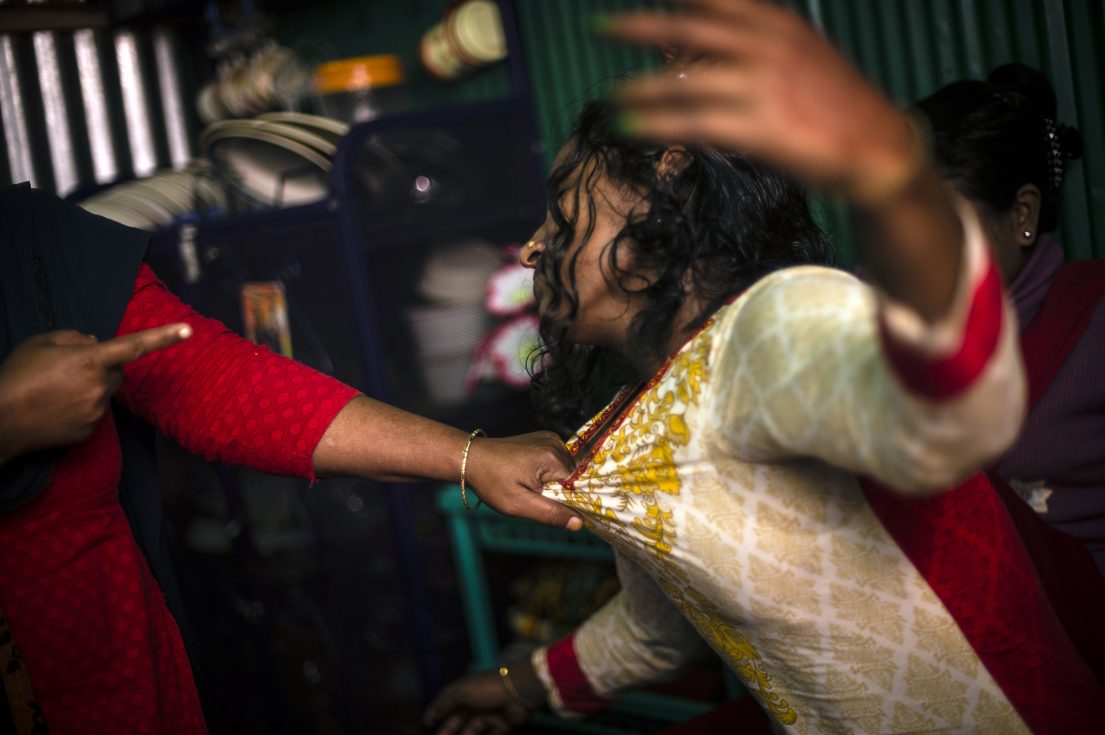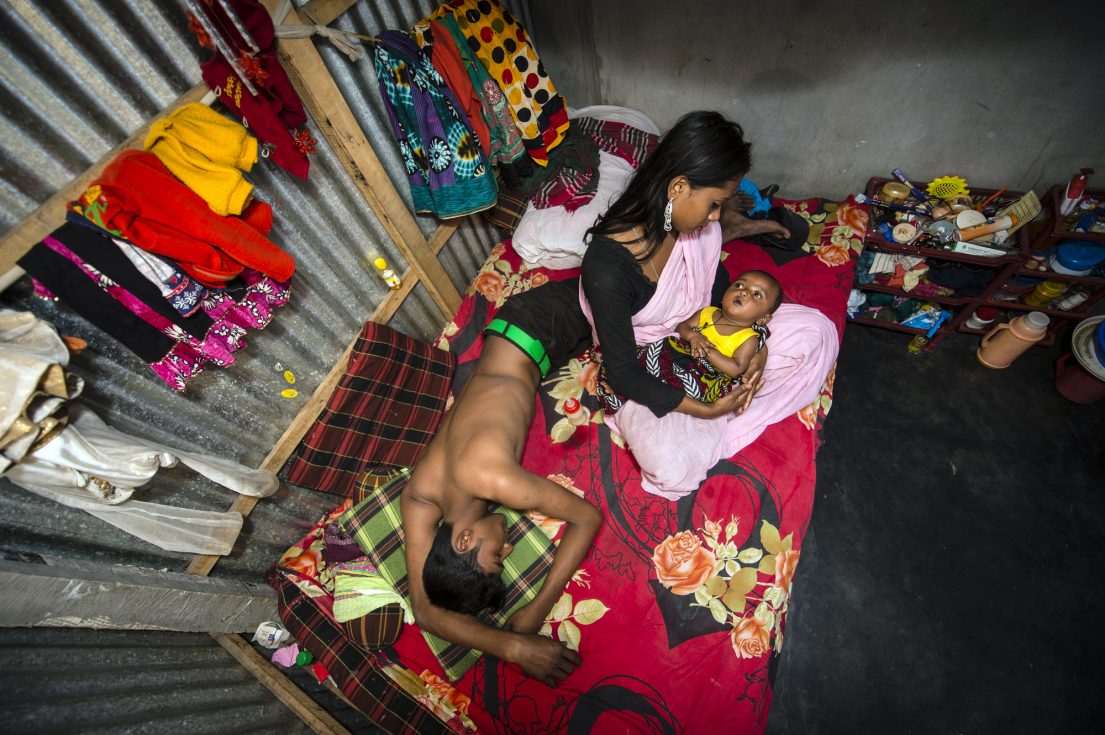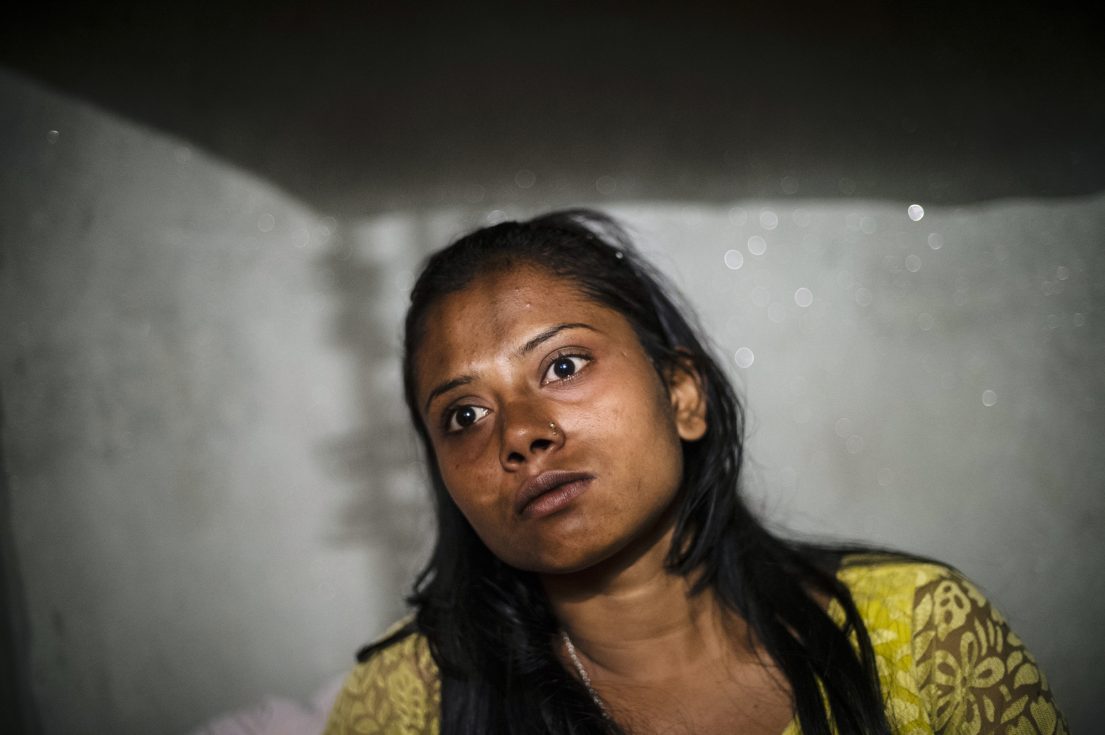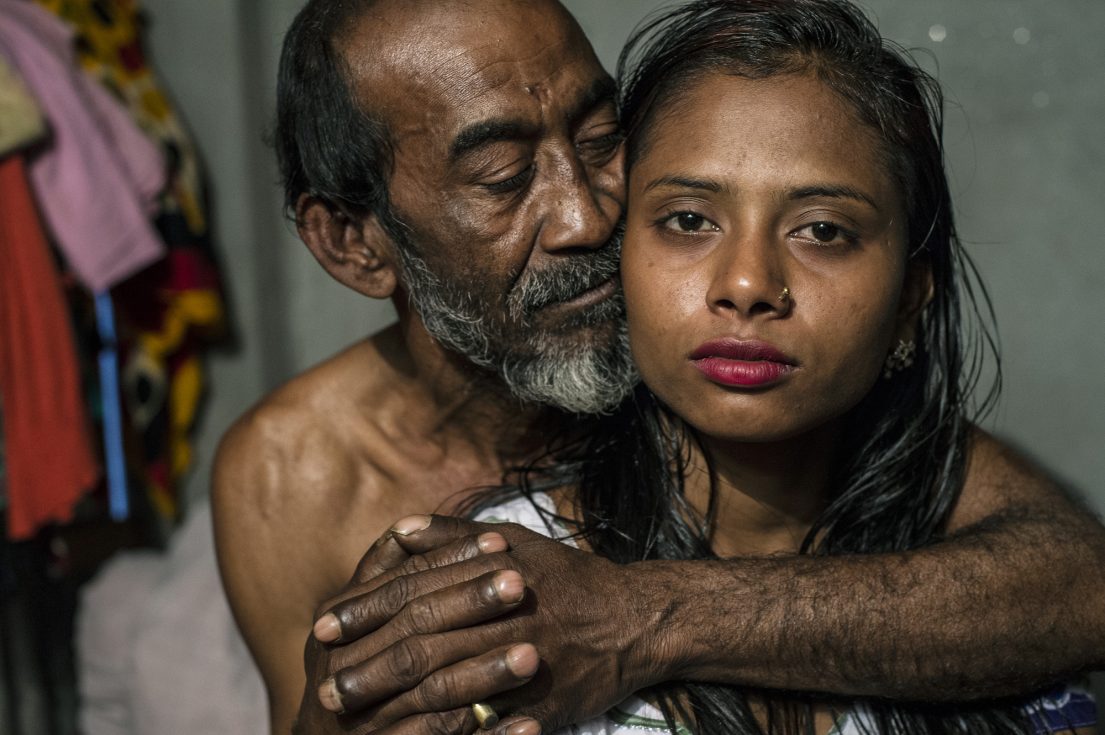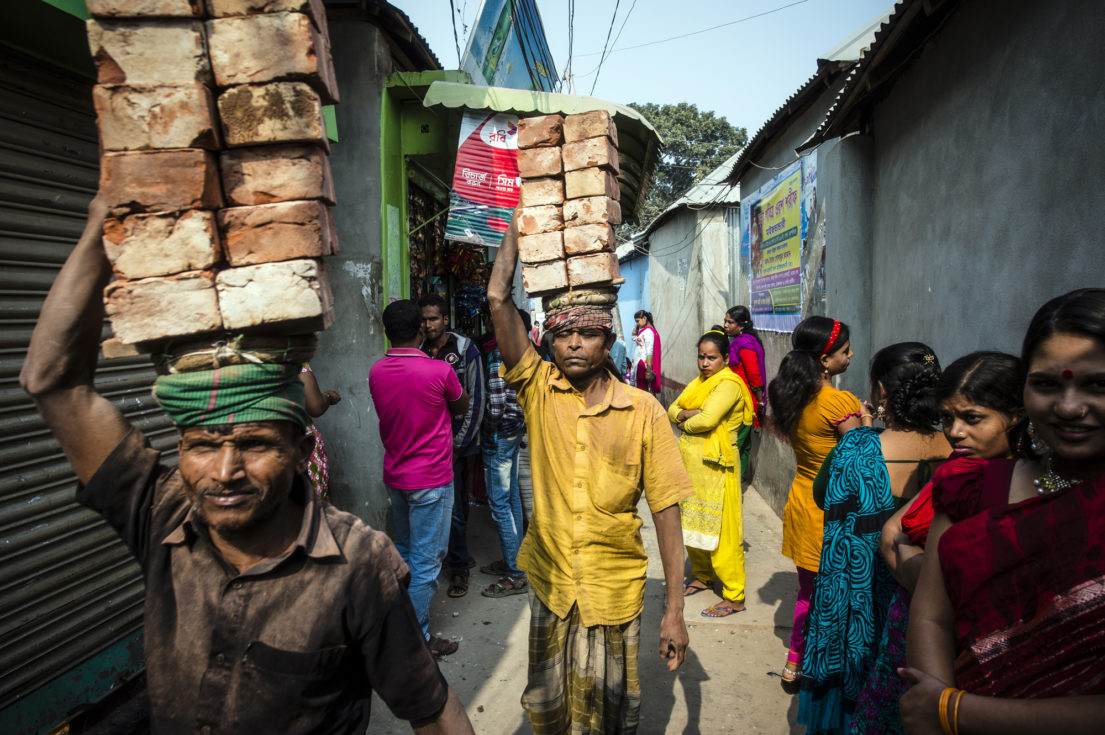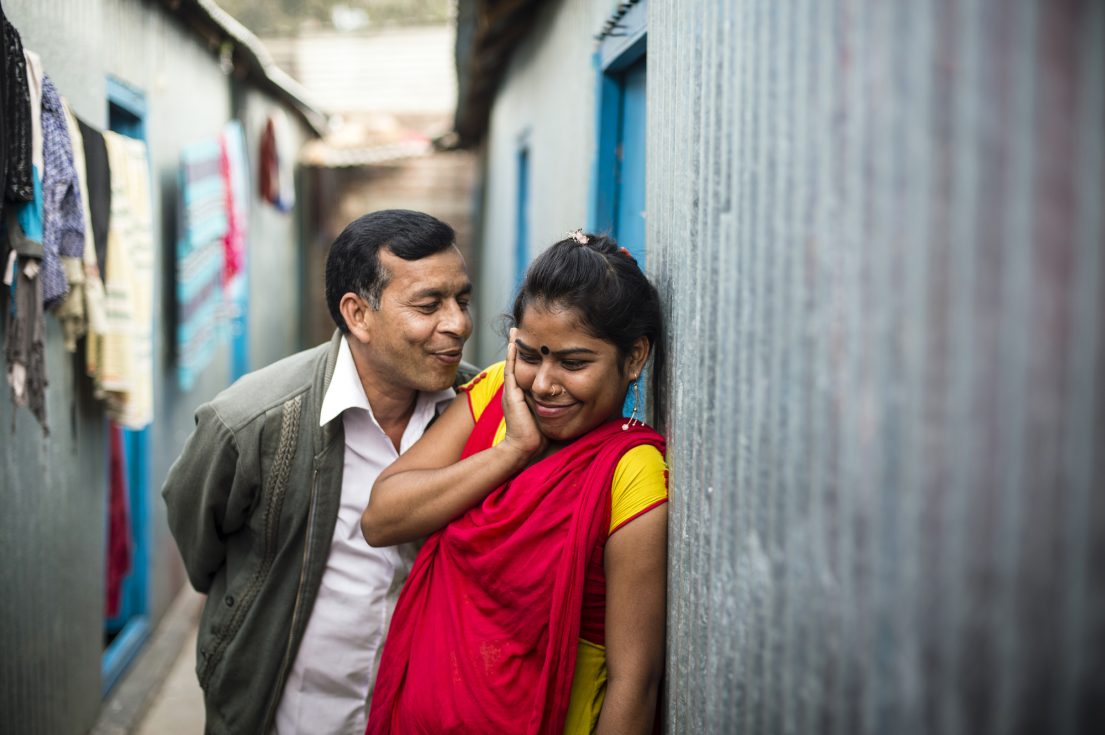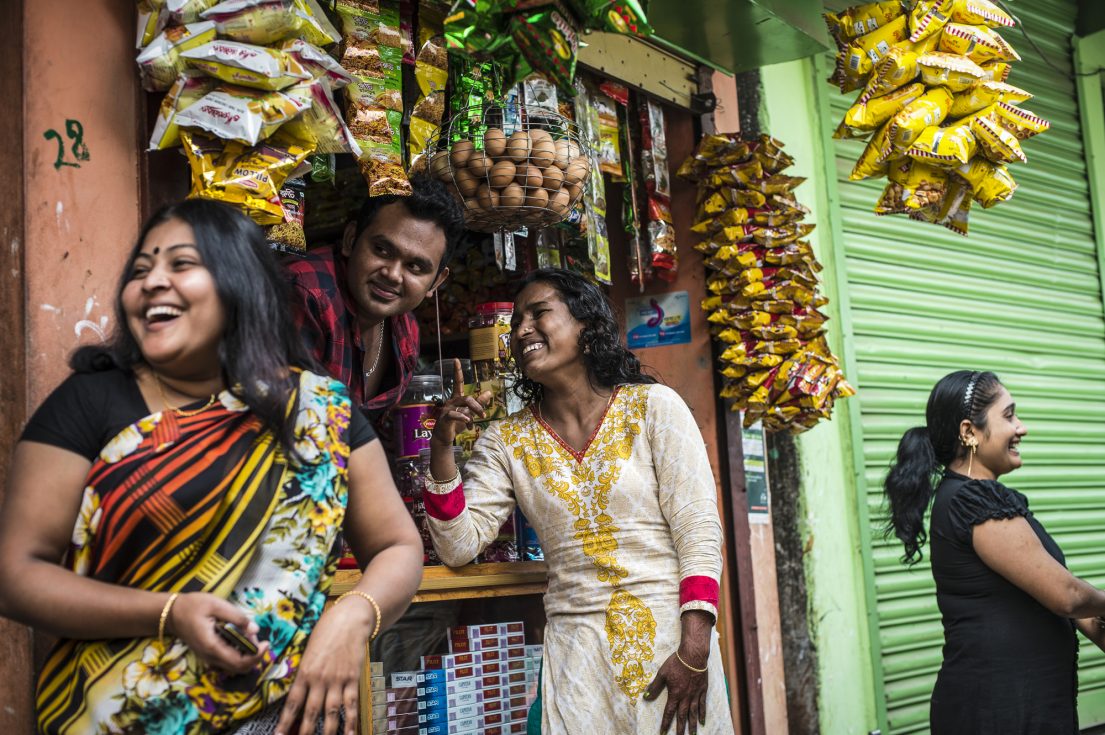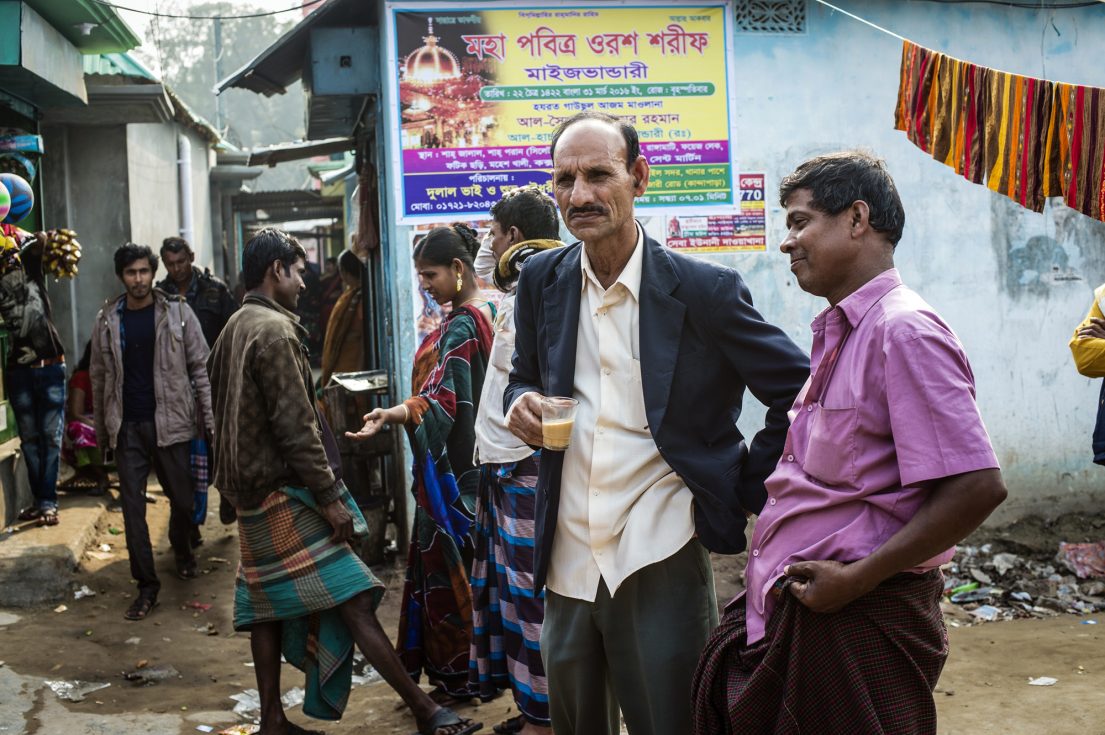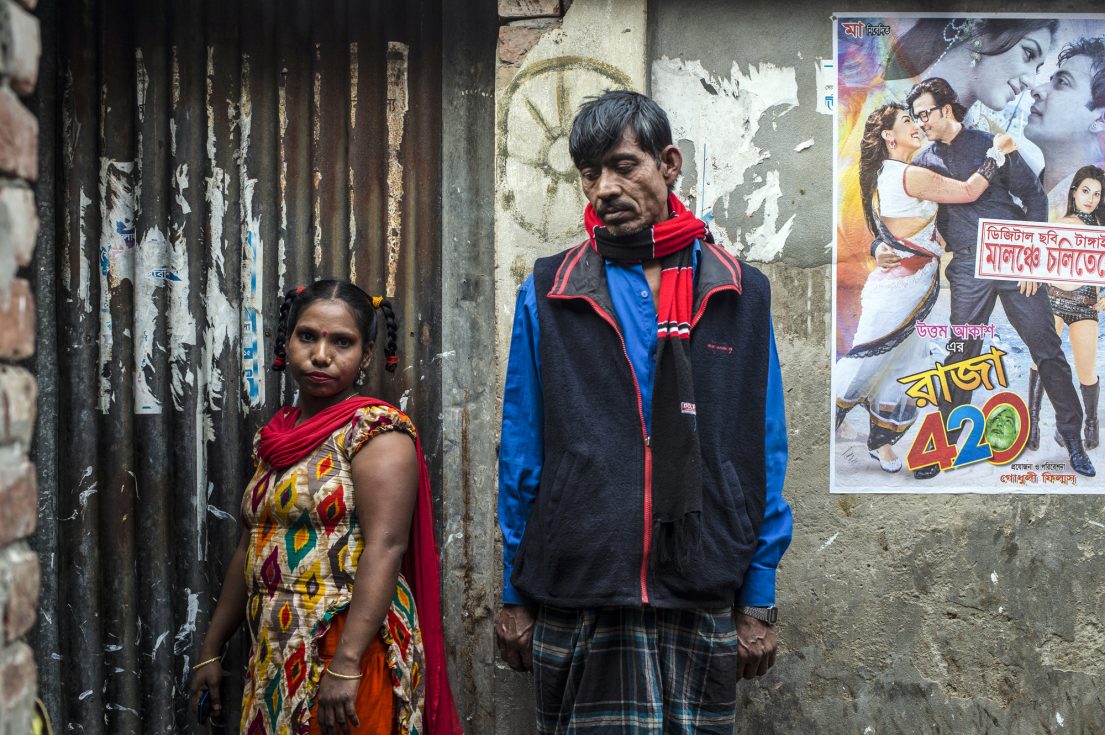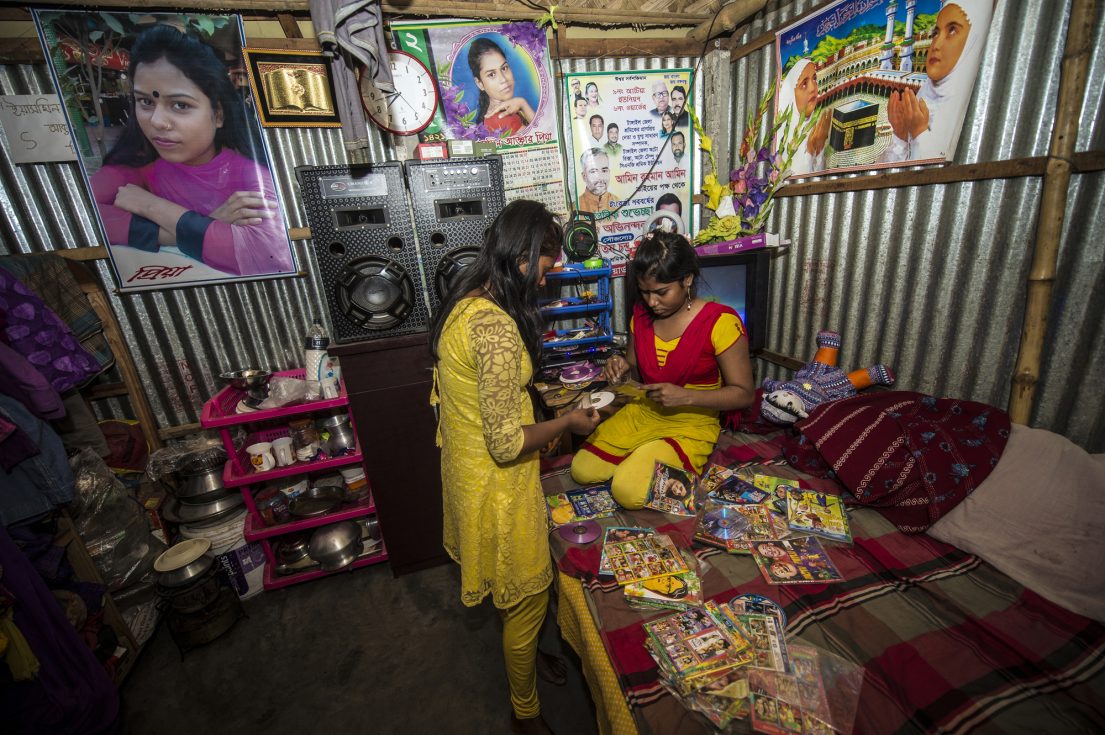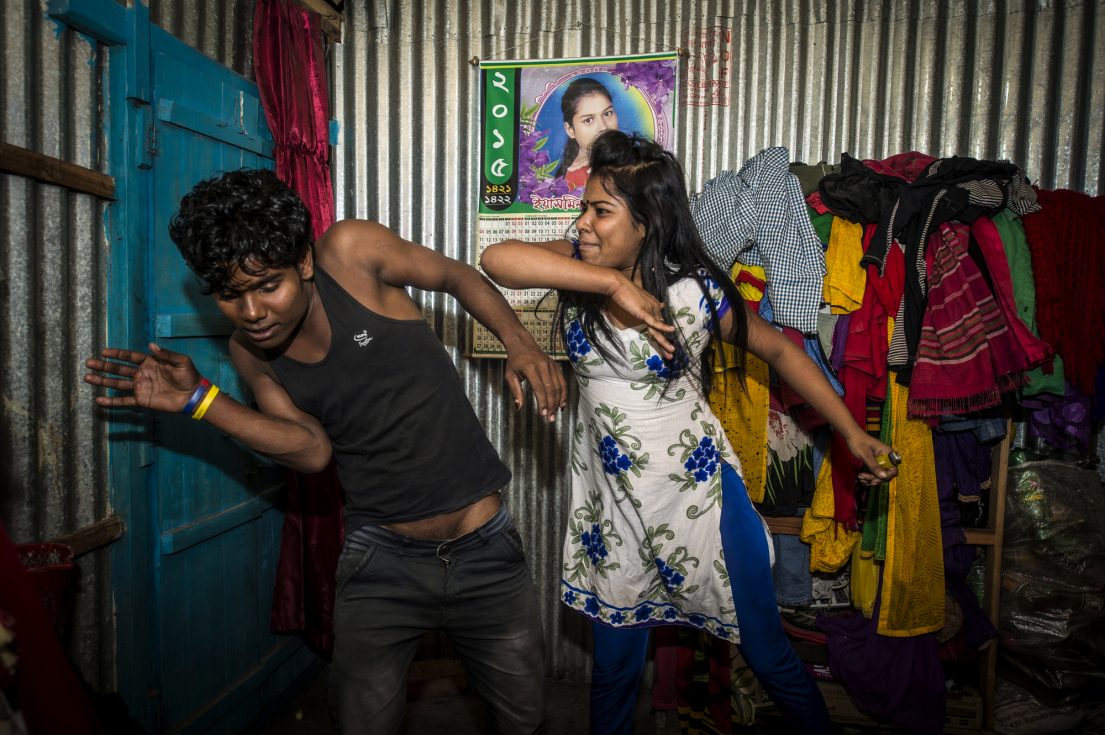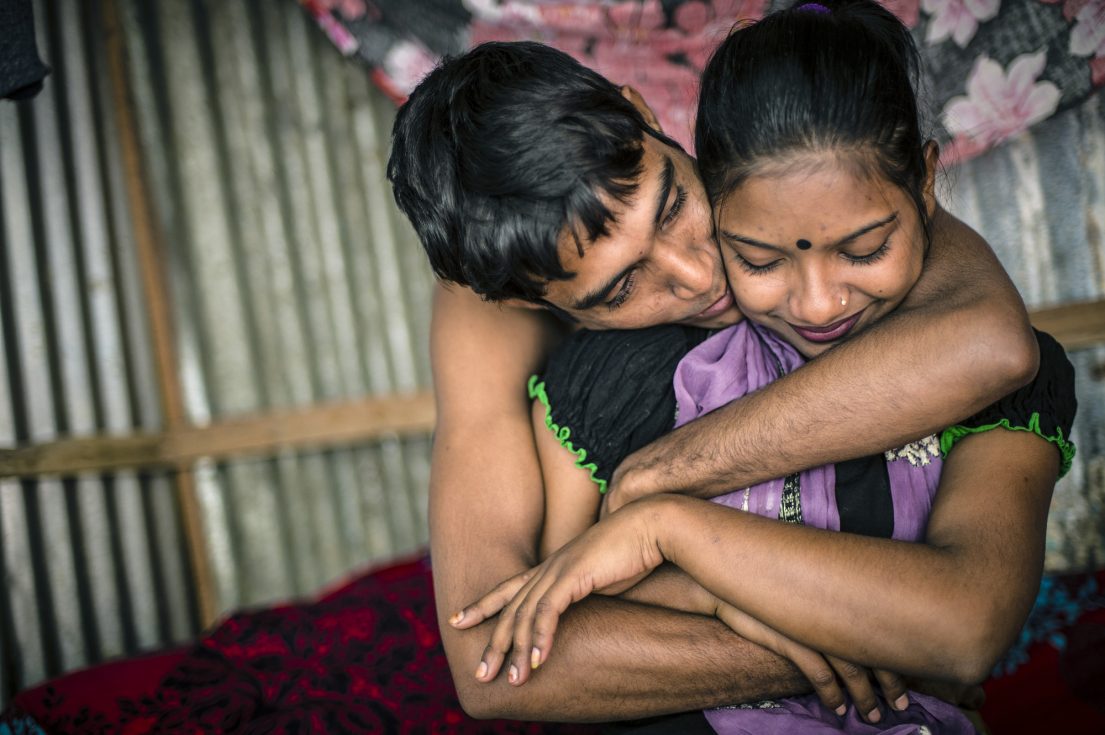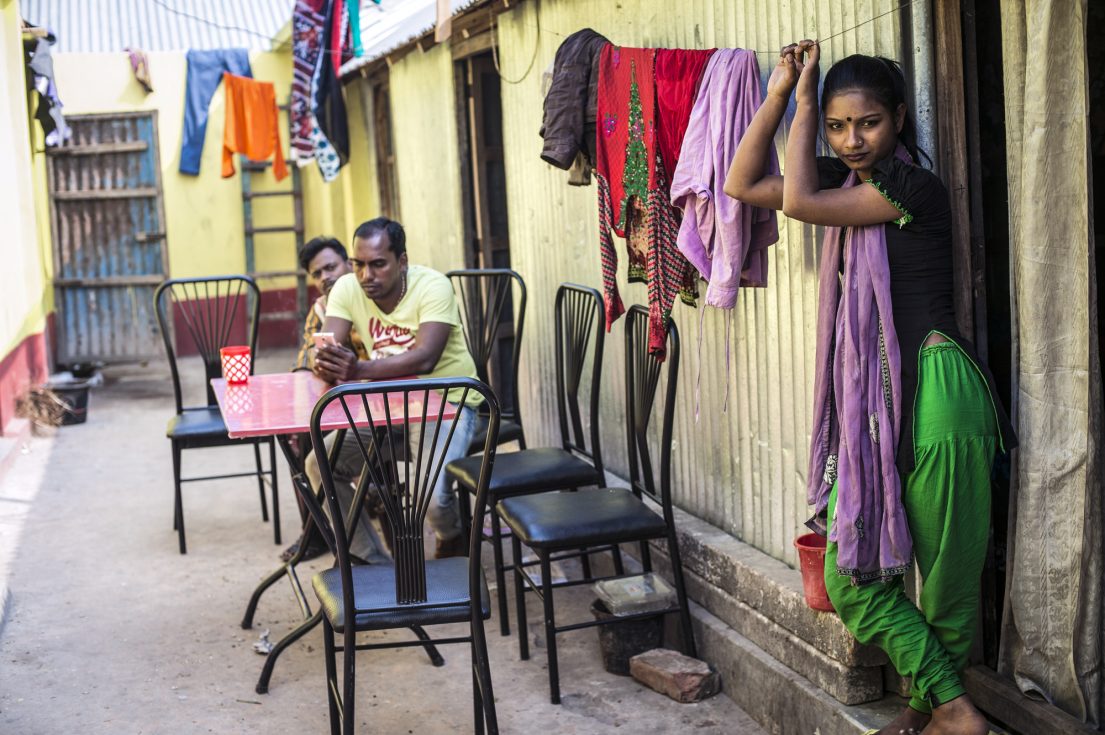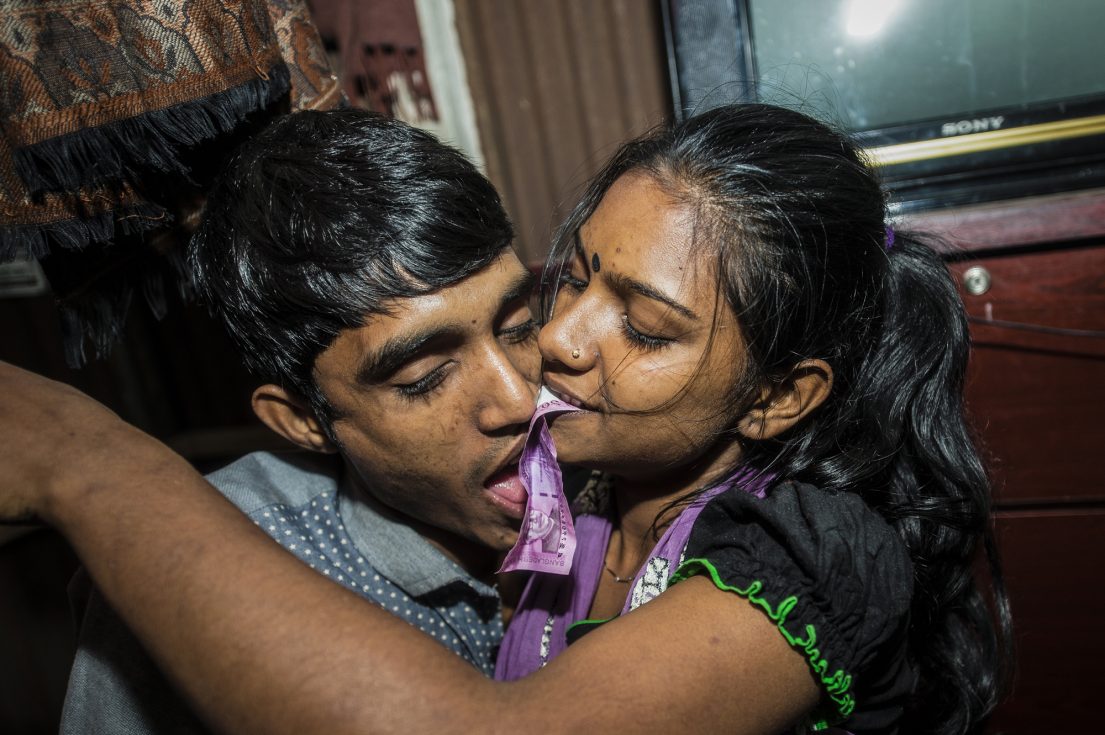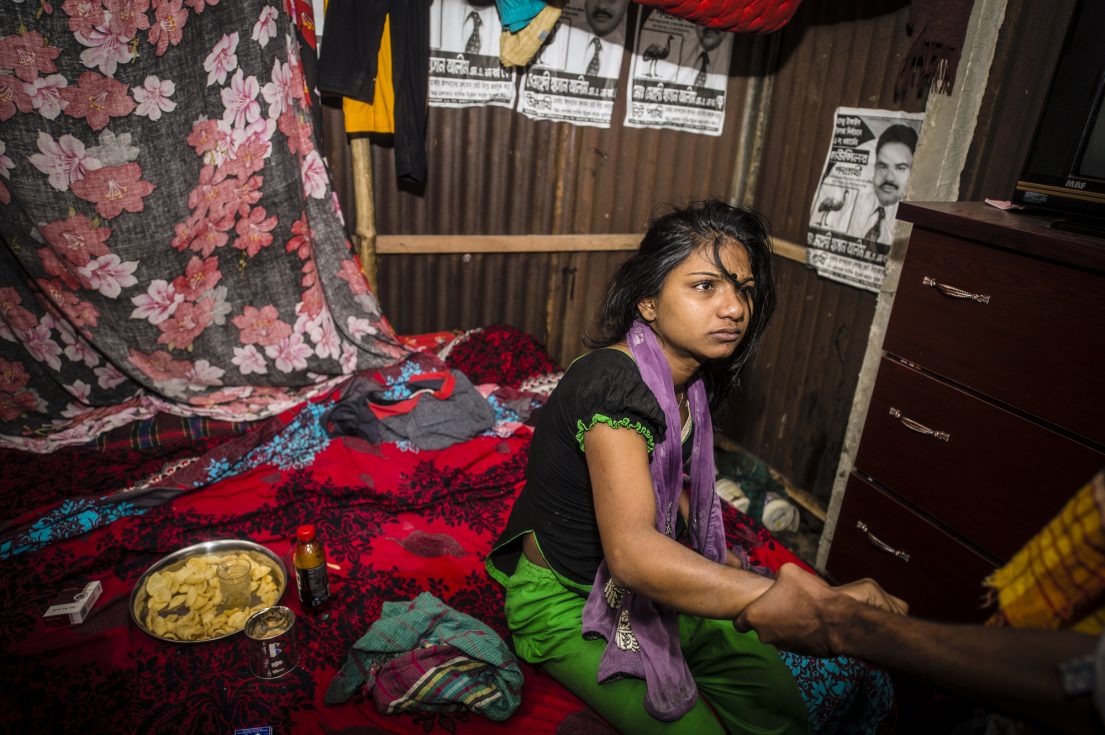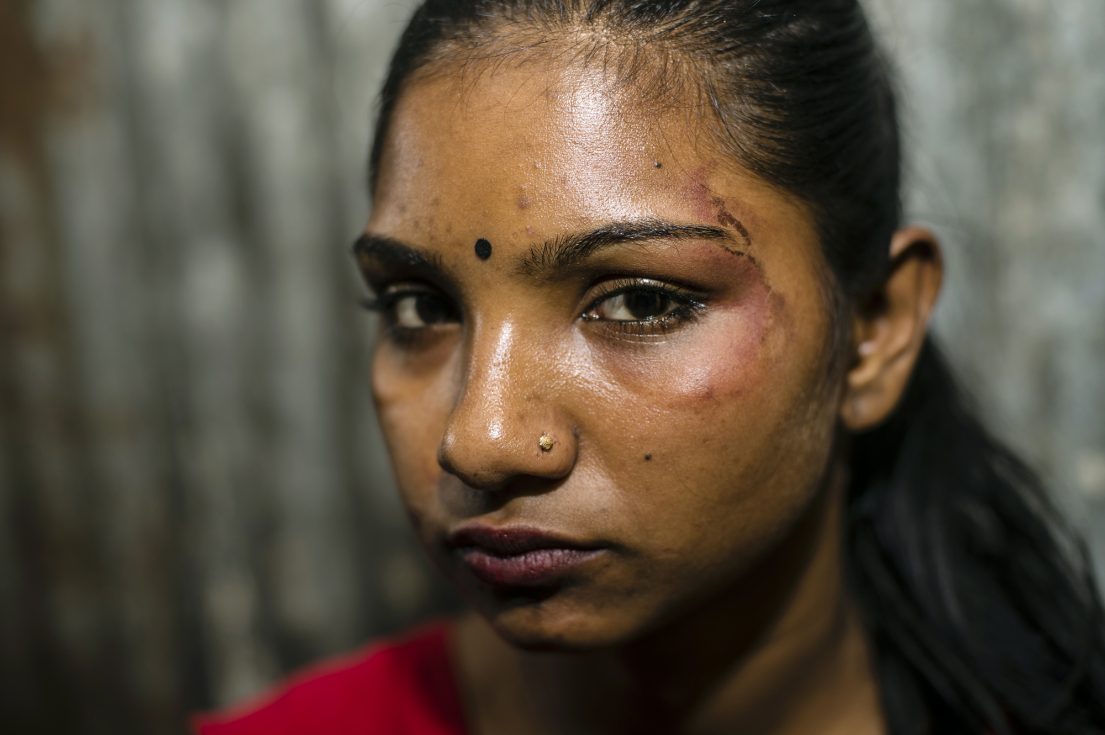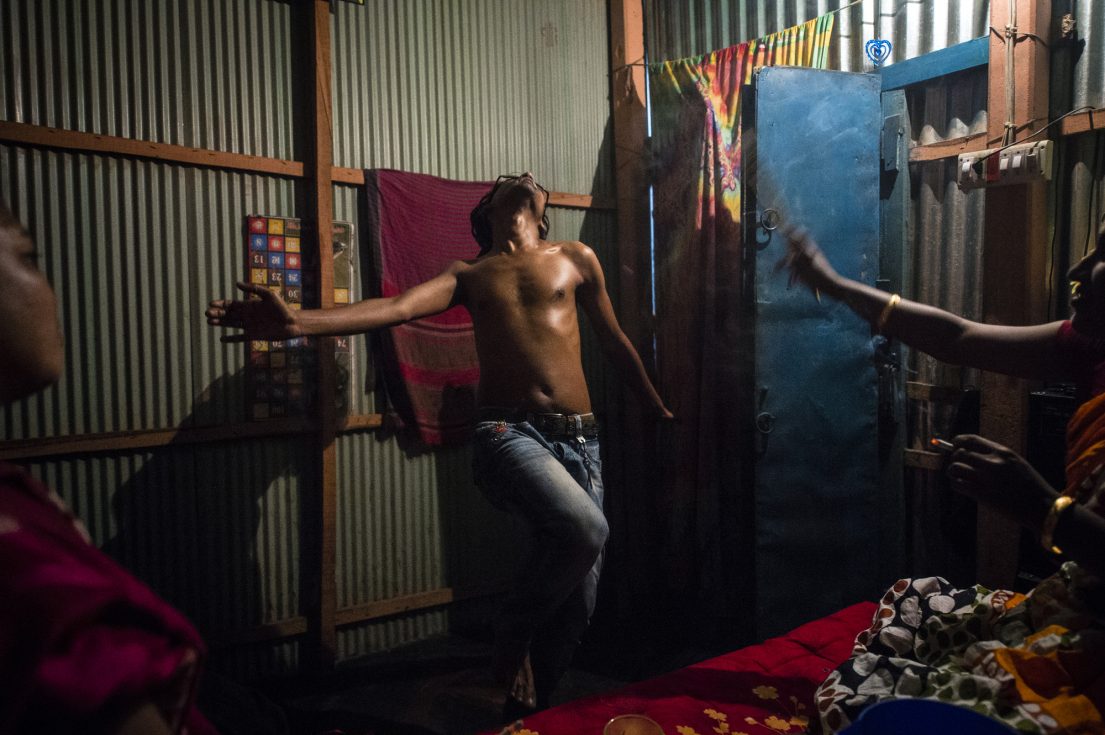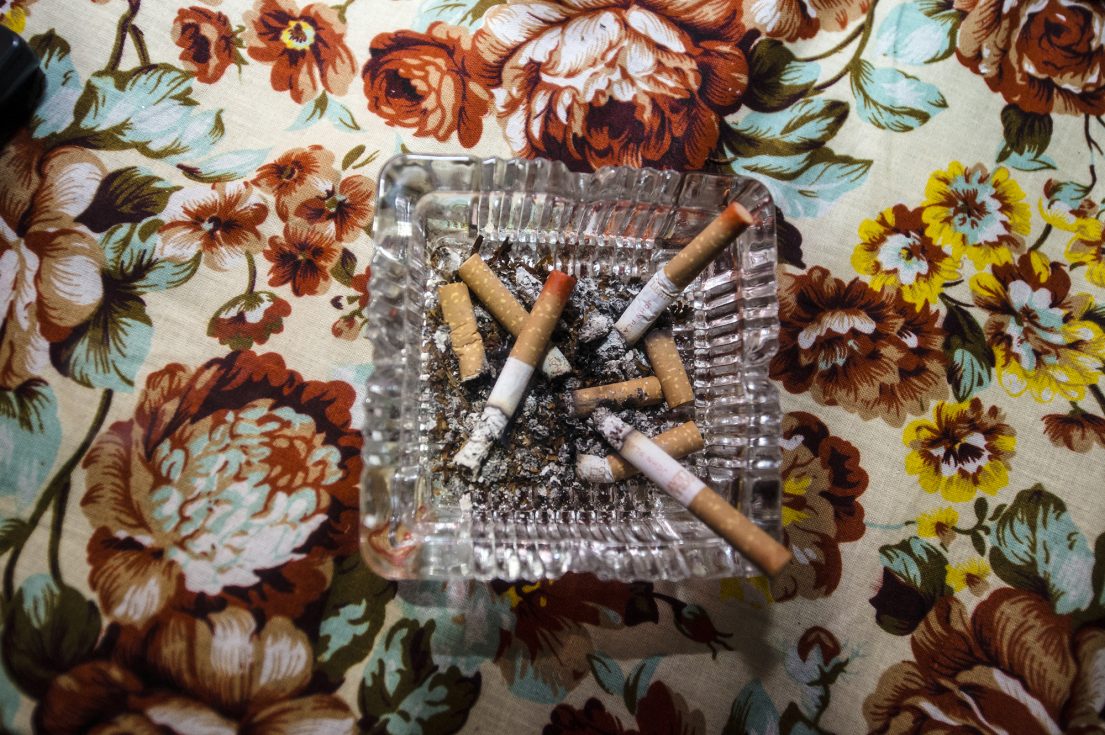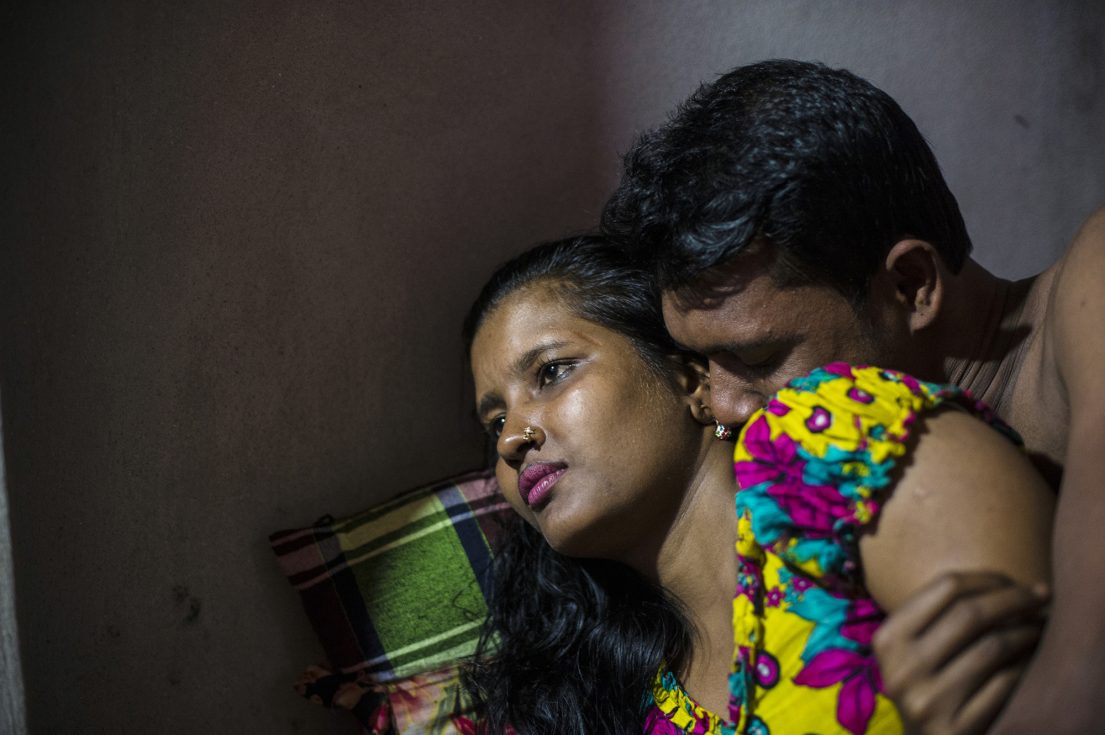The Longings of the Others
Bangladesh is one of the few predominantly Muslim countries in the world where prostitution inside registered brothels is legal. The Kandapara brothel in the district of Tangail is the oldest and second-largest in the country – it has existed for some 200 years. It was demolished in 2014, but has been established again with the help of local NGOs. Many of the women were born there, grew up there and didn’t know where else to go when it disappeared.
Supporters of the brothel believe that sex work is also work – and that these women don’t want to do something else. The women themselves demonstrated for their rights as workers, and so at the end of 2014, the Bangladesh National Women Lawyers Association convinced the High Court that the eviction of the sex workers was an illegal act. The sex workers quickly returned to their homes.
Today, the area’s “brothel district” is surrounded by a wall. In the narrow streets, there are food stalls, tea shops and street vendors. The brothel is a place with its own rules and hierarchies of power which are completely different from mainstream society. For example, inside the brothels, the women are weak but also powerful. The most vulnerable stage is when young women enter the brothel. Many come from poor families or got married as children and ran away from their husbands. They belong to a madam, have debts and are not allowed to go outside or keep their money. When they have paid all their debts, they become independent sex workers. Then, they can refuse customers and keep their own money. From the moment that a woman has paid her debts, she is free to leave the brothel. But these women are socially stigmatized outside their “homes” and thus often choose to stay and continue supporting their families with their earnings.
